By: Ollus Ndomu, Ukachukwu Okorie.
In the early hours of August 16, 2021, the declaration of Hakainde Hichilema’s odd-defying presidential victory, provided cause for celebration across Zambia’s ten provinces. After seven years of growing authoritarianism under the Edgar Lungu administration, Hichilema’s unforeseen landslide victory in Zambia elections sent a powerful message across Africa that even well-entrenched authoritative presidents can be unseated, against heavy odds.
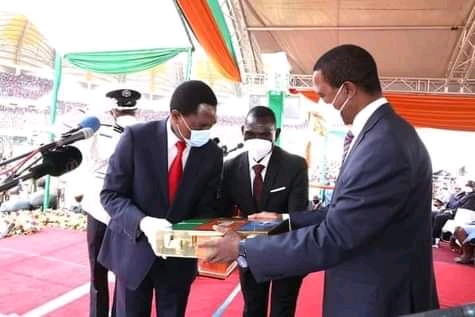
In his carefully-thought maiden speech delivered shortly after taking an office amidst an electrifying crowd on August 24, President Hichilema said, “This victory is not mine, but for all the citizens of our great country, especially the youth who turned out to vote in great numbers with great energy and passion, and made this day possible,” but wait, who is Hakainde Hichilema?
Background
Born into a low-income family on June 4, 1962 in Monze, southern Zambia, Hakainde Hichilema fondly called HH or Bally, has cast himself as a forward-looking self-made businessman. Coming from an ethnic group (Tonga) that prides in cattle rearing, Hichilema grew up heading herds, acquiring the art of wealth creation through nothing but hard work. He is also a staunch Christian belonging to the Seventh Day Adventist church where he is an invested Master Guide and a church elder.
Education
After attending primary school locally in Bweengwa village, Hichilema went to Kaloma Secondary School, before his admission to the University of Zambia on a government bursary where he studied and graduated in 1986 with a Bachelor of Arts (BA) in Economics and Business Administration. Years later, he obtained an MBA degree in Finance and Business Strategy from the University of Birmingham, UK.
Business/Jobs
With such a brief but rich education background, Hichilema would from as early as age 32 ascend to top positions in Zambia’s corporate world, landing such prestigious jobs as CEO of Coopers and Lybrand, from 1994 to 1998, and later as CEO of Cooper’s successor, Grant Thornton, from 1998 to 2006. Hichilema who is also a trained Business Negotiator, a qualified Change Management Practitioner and a member of the Zambia Institute of Directors, has gone in history the wealthiest Zambian to have been elected president.
Without doubt, his business acumen and impressive track record, enjoy both local and international acclaim. A large commercial famer, Hichilema is now the second biggest cattle rancher in Zambia with nearly 100,000 herds of cattle to his name on four ranches.
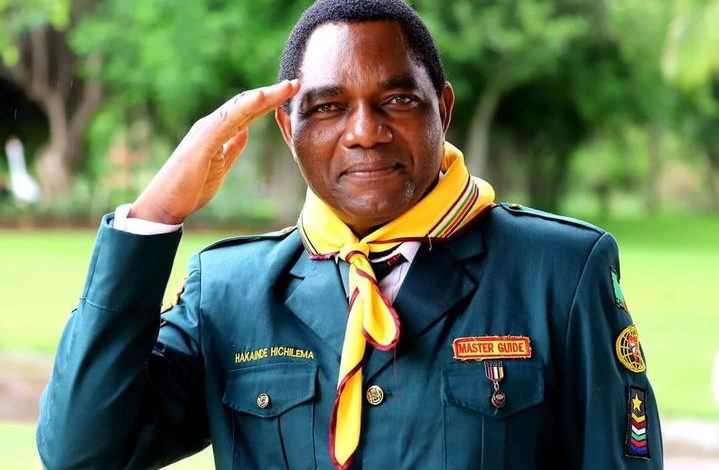
Moreover, the seemingly old-fashioned and flint-looking Hichilema is among his country’s biggest suppliers of meat to the local market, as well as one of Zambia’s biggest exporter of hard-currency-earning beef products. He also holds substantial investments in Zambia’s tourism sector.
Political Journey
Hichilema formally joined active politics in 2006 after the mysterious death of Anderson Mazoka, founder of the United Party for National Development –UPND-. He replaced his business mentor, tribesman and close friend to run a political party that lasted to become the trademark of Zambia’s economic redemption 15 years later. Since then ruling party politicians had, unsuccessfully, poured their energy into trying to keep him tied up in legal cases which he consistently refused to let stand in his way.

Arrested for 15 times with the state failing to secure a conviction on him, Hichilema’s rise to Zambia’s business elite and considerable wealth, made him an outsider on the political landscape. Before his odd-defying 2021 victory, he had contested six elections in total, with five attempts ending in defeat, rendering his political prospects bleak.
During the January 2015 presidential by-election, Hichilema came second in the race to the candidate of the then governing Patriotic Front, falling short by just 27,000 votes (1%). For this election, he traversed the 18-million man southern Africa country with a strong economic recovery message, arguing that Zambia needed a leader who understood business, while assuring to turn around the economy in order to unlock developmental benefits in health, education and elsewhere.
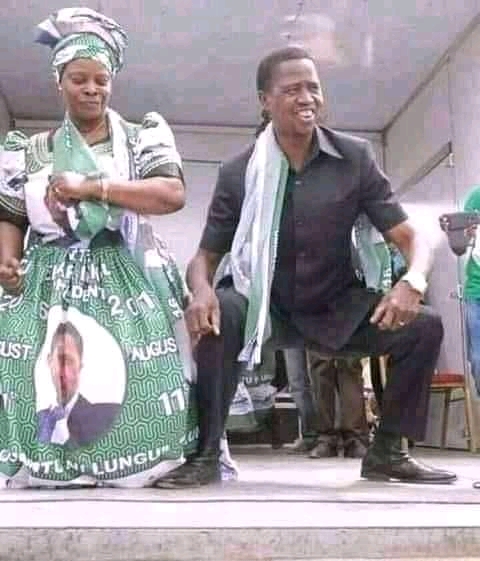
In the year (2016) that followed, Hichilema suffered yet another election loss to Edgar Lunguthat won 50.35 percent of the vote against 47.63 percent for the UPND’s HH. This time around, he challenged his rival’s re-election in the constitutional court, citing vote fraud, rigging and irregularities. But days later, the ConCourt shot down the petition with court Judge Annie Mwewa Sitali saying “This petition will not be considered by this court,” a decision that based on the expiration of the fourteen days hearing window. Arising from this ruling, the businessman turned long-suffering politician vowed to never acknowledge Lungu’s president, a decision that was heavily welcomed by his supports in traditional strongholds including Southern, North-western and Western provinces.
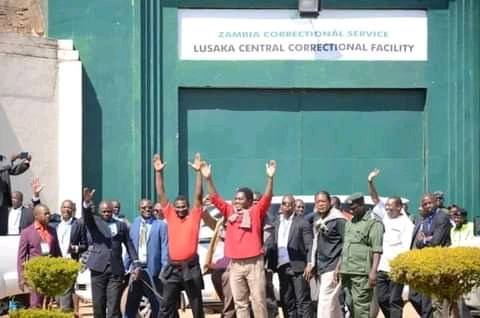
Fast forward, in April of 2017, Hichilema was charged with treason after his convoy refused to budge off the Limulunga road for the president’s convoy. Following this incident, he spent 127 days in jail, while Lungu worked to consolidate his grip on power through gagging dissent, the media, and interfering in operations of the judiciary. This was a politically tense period for Zambia that exposed how moribund the Africa Union has been. The African Union, the continental leadership body that has proved strong on protecting leaders from coups, failed to pacify the political turmoil that had been growing. It took the Commonwealth to reconcile political rivals for the sake of peace.
RISE TO POWER
Ahead of August 12 elections, the incumbent and his party invested heavily in campaigns to an extent that tribal hate speech against Hichilema’s ethnic group become a new normal. As reported by the Daily Maverick, Lungu did his best to assure victory in this, his third election, by hook or, if necessary, by crook.
He heavily restricted Hichilema’s campaigning, including by preventing him from flying to the up-for-grabs Copperbelt and other possible swing provinces.
PF youth cadres attacked UPND supporters; the government manipulated Covid-19 restrictions in its favour; it abused state media; it restricted UPND freedom of assembly and of expression. Lungu also directed state financial support, including for farmers, exclusively to PF supporters, said Neo Simutanyi, of the Centre for Policy Dialogue in Lusaka, at the Sapes Trust webinar.

But as political pundits say, election manipulation has a ceiling; Lungu’s camp did not realize that a languishing economy was their number one enemy, and not the opposition leader. Nic Cheeseman, professor of democracy at the University of Birmingham acknowledged this when he said “The number one focus of the people who voted for him [Hichilema] is economic recovery.”
“A lot of Zambians blame the Patriotic Front government for the economic difficulties they’re facing,” Cheeseman said. “They connect it to corruption. They connect it to the rising debt.”
Moreover, many Zambians felt that the economy was not going to get better under the Patriotic Front. So they are now banking on Hichilema’s reputation as a business figure who could perhaps be better at managing the economy and dealing with the international community,” Cheeseman explained in an interview with DW.

Regardless of having had his campaigns restricted to social media only, Hichilema sent his message across and his presidency is as a result total youth participation at every stage. This, he acknowledges as much as youths like Joseph Kalimbwe does:
“The youth played a critical role in voting out the previous regime and voting in a new UPND leadership,” Kalimbwe.
Since his assumption of office on August 24, Zambia has once again become peaceful without militarized political party cadres running markets and public places. Though faced with the debt mountain that has pushed up fuel and electricity tariffs, there is hope even as demonstrated in the 2022 national budget.
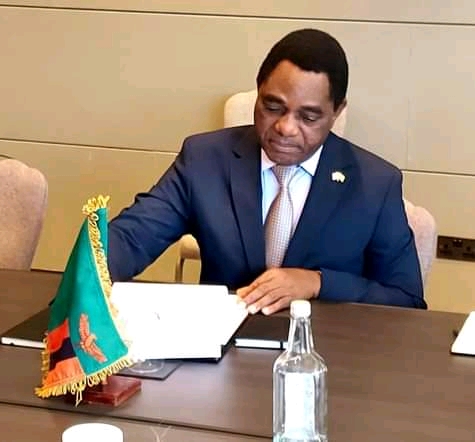
We acknowledge that there is growing impatience among Zambia’s, but fixing a damaged economy cannot happen overnight. Zambia is back, and Zambians have once again become free through the ballot.
Family Life
Hichilema is a husband to one wife, Mutinta Hichilema, and together, they have three children; one girl and two boys. The first couple remains towering inspiration among young Zambians for many reasons including mutual respect and support, morality and religious sensitivity.
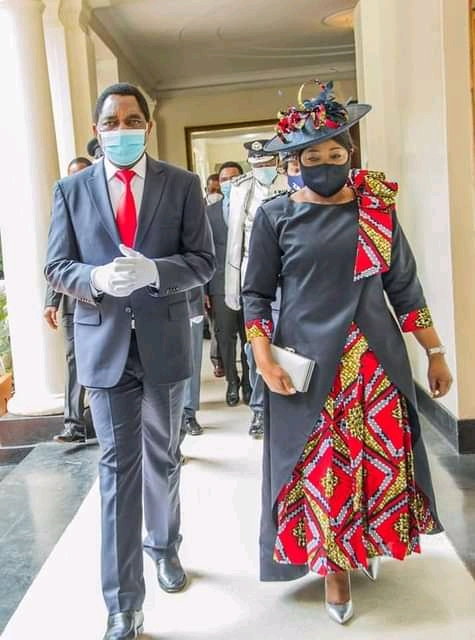
WHY HE IS AFRICAWORLD’S MAN OF THE YEAR
In line with AfricaWorld Newspaper tradition, the editorial board chose HH for a couple of reasons, which include defiling all odds to beat an incumbent president, energizing Zambia youths, political tolerance and clinical management of resources.
Having risen from a humble background to make a fortune in property, finance, healthcare, tourism and ranching, many young Africans will be inspired by his story. We are proud of his sterling qualities, and as such award him AfricaWorld 2021 Man of the Year.

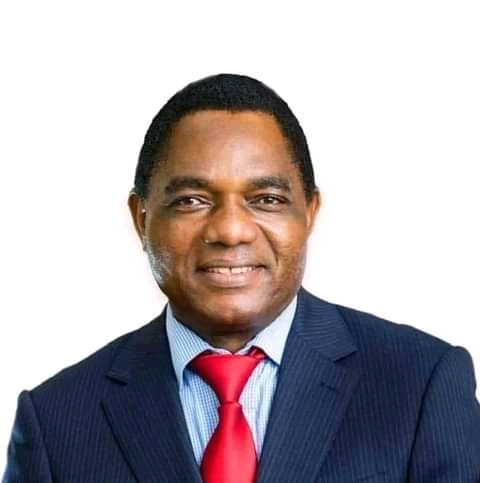

Nice post. I was checking continuously this blog and I am
impressed! Very useful information particularly the last part :
) I care for such information a lot. I was looking for this certain info for a long time.
Thank you and best of luck.
At this time it looks like BlogEngine is the top blogging platform out
there right now. (from what I’ve read) Is that what you are using on your blog?
We absolutely love your blog and find a lot of your post’s to
be exactly I’m looking for. Would you offer guest writers to write content available
for you? I wouldn’t mind producing a post or elaborating on some
of the subjects you write concerning here. Again, awesome site!
Awesome things here. I am very happy to peer your post.
Thanks a lot and I’m having a look ahead to contact you.
Will you please drop me a mail?
I used to be able to find good information from your articles.
An impresasive share! Ihave just forwarded this onto a
colleague who has been conducting a little research on this.
And he actually ordered me breakfast simply because I stumbled upon it for him…
lol. So let me reword this…. Thabks for the
meal!! Buut yeah, thanx for spending time to discuss
this matter here on your website.
Alsoo visit my web blog shower invitation (http://footprintsderfilm.com)
bookmarked!!, I love your blog!